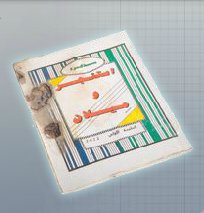I recently watched the German film “The Lives of Others,” got ready to mail it back to Netflix, but couldn’t let it go. Scenes from the film, elements of the plot, haunted me for two days, so I tore open the Netflix envelope, and watched the film again. I recommend it to all readers of this blog, but only if you can stand an emotional roller coaster and are ready to agonize over what it’s like to live in a national security state.
In the film, situated in Berlin in 1984, the security state is the communist-ruled German Democratic Republic, and their strong arm is the Stasi, the secret police. The playing out of the major theme of the film—how good men deal, over time, with the corruption and malevolence of a security state—is, successively horrifying, infuriating, anxiety-provoking, and ultimately inspirational. See the New York Times review.
In the United States, the term national security state is associated with the National Security Act of 1947. In In his book “Brave New World Order,” Jack Nelson-Pallmeyer argued that characteristics of a national security state include: investing enormous power and influence in the military; viewing true democracy as dangerous; promoting an ideology claiming that freedom and development are possible only when the elite are in control; seeing enemies everywhere and considering any means to destroy them as justifiable; and restricting public debate through intimidation.
We see all of these characteristics in The Lives of Others. In this day of spy drones and the National Security Administration in the United States, should we be watching for them here?
Kathie Malley-Morrison, Professor of Psychology



